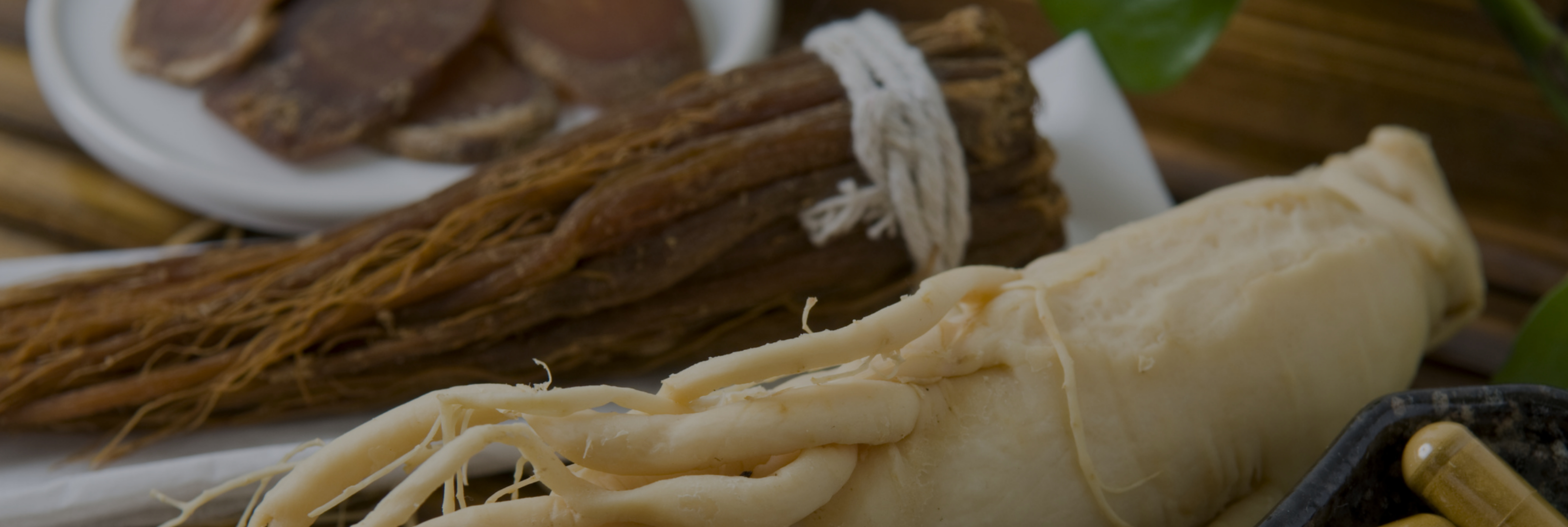In recent years, botanicals have boosted the food supplement market. Consumers are attached to naturalness, synonymous with well-being, safety and environmental responsibility. Let's take a look at some of the inspirations behind the use of botanical ingredients in supplements, which promise a bright future for the botanical market.
Phytotheray and science for food supplements
Based on their high content of bioactive compounds, botanicals are precious ingredients whose virtues have been known throughout the world for thousands of years. Today, the major trends in the health argument for food supplements incorporating botanicals cover all segments, from immunity, sleep, vitality and energy to women's health, nutricosmetics (skin, nails, hair) and healthy joints.
Phytotherapy and scientific research have led to a multitude of discoveries using the various botanical ingredients: herbs, flowering tops, leaves, rhizomes, roots, buds, berries and seeds. In the form of powders or extracts, the various botanical raw materials are the exploration ground for active ingredients sought for their benefits and sources of vitamins, minerals and nutrients.
Clinical studies, for example, show the regulating effects of adaptogenic botanicals (1), their widespread action on the body, but also their superfoods role (goji berry, pomegranate, ginger) based on their exceptional antioxidant, polyphenol and bioactive compound content (2). These nutritional qualities, with their varied health benefits, enable brands to expand their product ranges of food supplements and alternative solutions using a range of innovative ingredients.

Liquid botanical supplements accounted for a 25.50% market share in 2023. This figure can be explained by the demand for natural and organic products. Unlike traditional galenic formulations (capsules, tablets, etc.), liquid extracts are easy to swallow and can be mixed with functional drinks or pharmaceutical formulations (3).

Hygée's ‘La Sérénité’, for example, helps the body to cope better with stress based on a natural concentrate of powdered botanicals (ashwagandha, holy basil), superfoods (acai, moringa) and inulin, which work in synergy to enhance their effects (4).
According to the 2024 barometer of food supplement consumption in France (5), the naturalness of supplements is an essential purchasing criterion for 81% of consumers, and 79% of them also attach importance to the absence of additives. As for their expectations:
- 51% of them want a transparent origin of ingredients (30% among 18-24 year-olds)
- 52% want clearly defined benefits (6)
- 37% of 25-34 year olds are looking for allergen-free or gluten-free alternatives or alternatives adapted to their specific eating habits (7).
As sources of essential nutrients and vitamins, botanical-based supplements are ideal, for example, as a protein option for vegetarians and vegans (spirulina compensates for iron and protein deficiencies).
Sourcing and sustainable development for food supplements
The reliability and effectiveness of food supplements depend on the procurement source of botanicals, the quality of extraction of the active ingredients and their dosage. Dynveo, for example, claims to offer its customers “the highest purity and concentration of active ingredients on the market”, with its quercetin in anhydrous form, titrated at over 98% (8).
Promoting ethical production and supply chains while guaranteeing the transparency of botanical supply chains is a challenge for natural ingredients professionals. Sourcing is a major guarantee of the quality of the raw materials selected. Botanicals, which come from sustainable and eco-responsible sources, also offer an opportunity to maximise the value of products via the image of naturalness and authenticity they convey. The popularity of food supplements with organic labels or derived from sustainable development resources is posted at 28% (9).

In order to respect nature's resources and commit to sustainable development objectives, manufacturers have adopted a CSR policy. From ethical production based on solidarity and fairness to the provision of natural ingredients, minimising the impact on the environment is taken into account at every step in the chain. This involves improving industrial tools and reducing energy expenditure (greenhouse gas emissions, carbon footprint). The packaging of botanical products is now eco-designed and recyclable.
Upcycling and zero waste (recycling spent grains, post-extraction residues, composting, etc.) in the world of botanical processing are now commonplace! Professionals in the botanical ingredients sector are also demonstrating their desire to offer a Made in France product range that supports local producers, preserves biodiversity and showcases a wide variety of botanicals used in food supplements. French manufacturing is a growing criterion in the purchasing choices of 65% of consumers (10).

Organic food supplements bearing the claim ‘free of’ (additives, excipients, GMOs, lactose, animal proteins, pesticides) represent all the performance features of trendy health products for consumers who value safety and naturalness. Choosing a clean label food supplement is also a guarantee of confidence.

For example, UNAE uses Vitashine®, a premium quality botanical vitamin D3, a patented form derived from wild boreal lichen. The brand offers this 100% natural supplement to support the immune system, bone health and muscle function, without dairy products, gluten, soya, usnic acid or allergens.
Functional foods
The potential of botanicals has enabled their use to be extended, particularly in sports nutrition, as well as in consumers' daily routines. Easily incorporated into preparations (smoothies, green blends, porridge, etc.) botanicals can be found in a wide range of functional foods. As well as being green and healthy, they add a naturally sweet fruity taste and pleasant colours to make the product attractive.



Bars, drinks, compotes and snacks presented in practical and attractive gourmet formats incorporate botanical raw materials to encourage the consumption of healthy products.

With a range of advantages, ‘botanicals are no longer an alternative, but an Eldorado for the senses and sustainable development’ (11) for future food supplements innovations.
Please feel free to contact us.
To see our entire product range, check out our online catalogue available 24 HOURS A DAY 7 DAYS A WEEK.
Sources :
(1) Goetz, P., Ginseng and other adaptogenic plants. Instructions for use of ginseng and other adaptogens*. From Research to Practice 2, 113–116 (2004). https://doi.org/10.1007/s10298-004-0032-3
(2) Chang, SK, Alasalvar, C., & Shahidi, F. (2019). Superfruits: phytochemicals, antioxidant efficacy and health effects - A comprehensive review. Critical Reviews in Food Science and Nutrition , 59 (10), 1580-1604. https://doi.org/10.1080/10408398.2017.1422111
(3) Liquid Food Supplement Market size, share and trend analysis report by ingredient (vitamins, botanicals, minerals, proteins and amino acids, omega fatty acids), application, end user, type, distribution channel, region and segment Forecast, 2024 – 2030
(4) https://hygee.co/collections/bien-etre/products/serenite
(5) Toluna Harris Interactive for Synadiet
(6 & 7) https://actifs-connect.com/9-francais-sur-10-satisfaits-des-complements-alimentaires/
*Survey carried out on an online panel from 23 to 27 February 2024, involving a sample of 1,049 French people, representative of the population aged 18 and over + online qualitative fieldwork from 26 to 28 February 2024 (34 consumers of food supplements via a platform with 19 semi-directive questions asked).
(8) https://www.bfmtv.com/economie/entreprises/dynveo-la-revolution-nutraceutique_AO-202106250003.html
(9) https://actifs-connect.com/9-francais-sur-10-satisfaits-des-complements-alimentaires/
(10) Toluna Harris Interactive for Synadiet
(11) Natexpo source
Claire Alcais
Copywriter - Author








Leave a comment